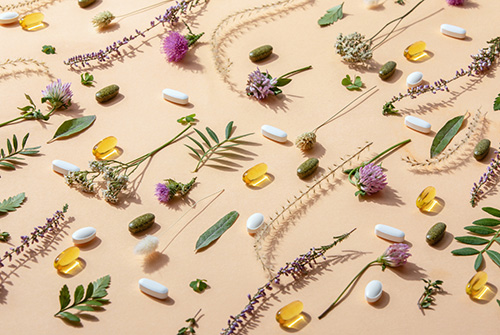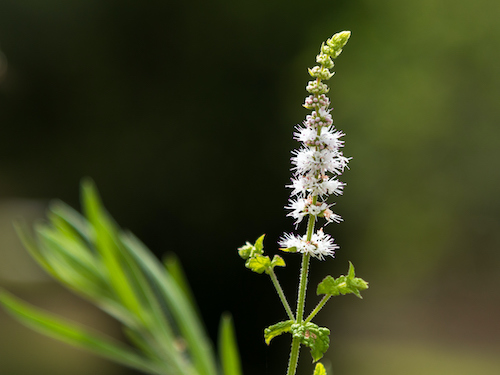Q: It seems as though every time I turn around there is conflicting information in the news about various herbal alternatives for menopausal symptoms… black cohosh, dong quai, chasteberry — the list seems to go on and on.

One day an herb is being touted as effective for hot flashes, bone loss, or irregular periods, and the next it’s being confirmed as ineffective.
I’ve seen warnings about the safety of herbal products not regulated by the FDA, too. What gives? I’m tempted to try one or two of these products but I don’t want to throw my money away or risk side effects.
A: True, there are many herbal products for menopausal symptoms available on the market, and in many different formulations and preparations. And conflicting reports do abound on their efficacy and safety.
But we would like to point out there have been very few large, well-designed and controlled studies on these herbs as they are for the most part not subject to patent laws, so big pharmaceutical companies aren’t as interested in pursuing them. The funding to conduct research and development on herbs is just not as available as it is for patentable, highly profitable synthetic drug products.
Nonetheless, most herbal treatments for menopausal symptoms have a legacy of use down through the ages and across many cultures. Because we have seen good results in women using herbal products and supplements over the past decade, we do continue to recommend and use them.
For example, black cohosh (Cimicifuga racemosa) has a long and venerable history of use for hot flashes, and based on the experience of our patients who use it, we believe it to be effective. And in fact, there are good scientific studies that validate our observations, and there are studies for which subjects are being recruited right now. If you’re curious or wish to participate, visit the clinical trials site of the National Institutes of Health. For more information on how this medicinal herb works, see our page on black cohosh for menopausal symptoms.
But just because we see a result that validates our stance on herbal treatments for menopausal symptoms does not mean that any one thing will work for every woman under every possible circumstance. We know that each woman’s body chemistry is unique.
So when we read that some researcher or another has not found one of these herbs to be effective, we query the details on how they conducted their study: the methods and formulations they used; what other medications or supplements the subjects were on; what other innumerable factors could have compromised the data; what corporate or government affiliations principal investigators may have! Designing a large objective study that controls for all the contributing factors requires a bit of genius, and conducting one can be a monumental, costly challenge. We acknowledge that the placebo effect can be strong medicine, too!
The bottom line is, if herbal preparations speak to your sensibilities, we would encourage you to give them a try. If your symptoms are moderate to severe, you may benefit from our own Herbal Equilibrium, a multibotanical formulation that is designed to gently support balance among all three of the hormones most prone to flux in menopause: estrogen, progesterone, and testosterone. See our substantiation and further references on Herbal Equilibrium for more on the safety of and scientific basis for this formulation.
If you feel hesitant or your medical history is complicated, consider seeking the counsel of a qualified naturopath, trained herbalist, or practitioner of Traditional Chinese Medicine, whose daily work is to heal with the use of herbs.
Return to:










